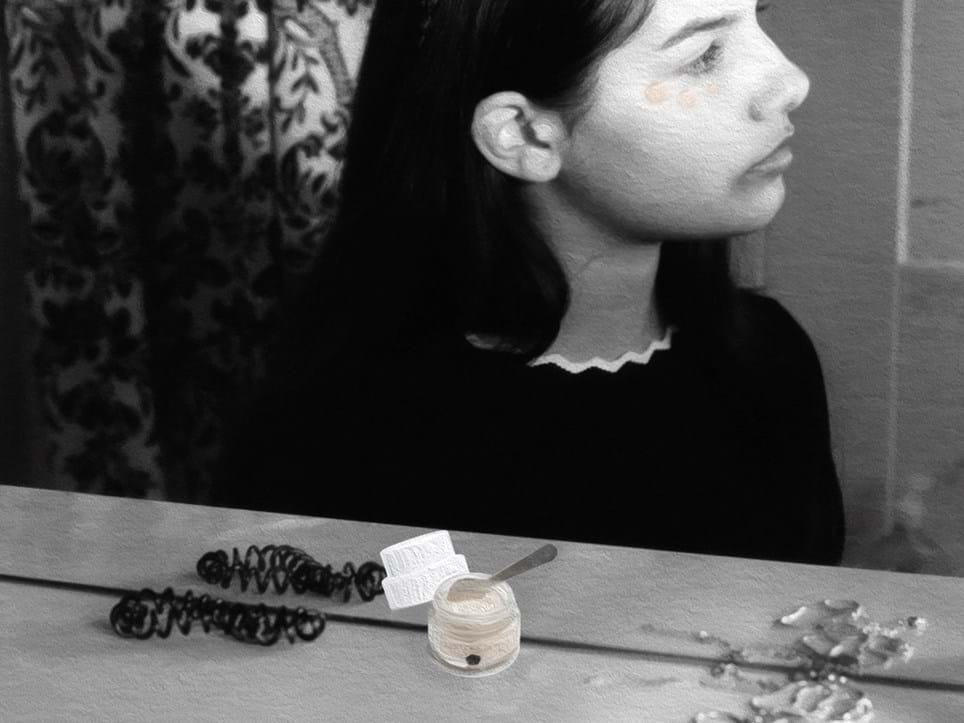Have you ever wondered what really makes an item sustainable? Or debated the qualities of an "it" item? Maybe you've pondered the future of retail in a post-pandemic world?
In a strange cycle of 'normal' life starting, pausing and restarting, more questions than answers have arisen in our daily lives. But in an effort to understand our surroundings better, we've decided to get some answers.
We're starting with what we know best and that is the questions driving the fashion and beauty industry forward. From topics on sustainability to the merits of organic beauty, we'll be digging into the questions that have perplexed us and piqued our curiosity; and to do so, we enlist the help of industry experts to get the full run-down.
During the days when the term adulting wasn't shunned by pre-teens and low-rise jean wearers, a way of achieving said state would be to invest in the latest 'it' eye cream. Often sold through a marketing slogan that read, 'this one actually works!', consumers delicately dotted the formulas expecting to wake up looking wide eyed, de-puffed and wrinkle-less. Sadly, that quite often wasn't the case. In fact, they seemed to have no effect at all. But is this still true today? Maybe we were expecting too much from them – in hindsight, those dark circles caused from a few too many late nights dancing in a sticky-floored club weren't going to be fixed by a beauty product. Especially now there's evidence to show that bad lifestyle choices can be detrimental for your skin. So, can they be trusted once again? We asked a few dermatologists to give us there opinion on whether they're worth using – spoiler: those who remember when adulting was a cool word should probably order a tub ASAP.
Why are eye creams important?
Even though it looks like they're not doing anything, Dr Ifeoma Ejikeme, skin expert, Medical Director and Founder of Adonia Medical Clinic highly recommends including them in your skincare routine. "For me eye creams do have a place," she says. "I view eye creams as part of the protection and preventative part of your routine. In general, they are unlikely to remove significant swelling or hyperpigmentation but they can help hydrate the under eyes and help with mild hyperpigmentation." For Dr Anthony Rossi, world renowned NYC Dermatologist, pioneering researcher and clinician, eye creams can also help protect an area that is constantly in action. "For many, eye creams are important because this area has some of the thinnest skin on the body. Right below the eyelid skin is a very active muscle, the orbicularis oculi, which closes our eyelids tightly. Since we are always using this muscle and blinking, we are constantly contracting it and the skin above which leads to wrinkles and crows feet. This area is also prone to allergic sensitivities, chronic UV exposure, and constant touching."
What should we expect from these products?
Annoyingly, the point of using an eye cream isn't for instant visual results, but more for the skin's general health, says Dr Rossi. "A great eye cream is specifically formulated for an area that not only shows our age readily but also is one that is quite delicate and sensitive. The idea is not to be irritating to the eyelid area but still help to improve the skin." Similar to paying into a pension pot, applying an eye cream is something you'll thank yourself for doing 30 years down the line. And think, when you get to the age of retirement the skin around your eyes will be looking as nourished as your bank account!
Dr. Ejikeme's favourite eye creams.
When should we start using them?
"I notice my patients more frequently complain about changes to the undereye area when they're in their 30s, so a good time to start would be mid to late 20s," says Dr. Ejikeme. Dr. Rossi also agrees, stating that during this time period our lifestyles may not be doing our skin much good. "At this time we may be showing more wear on the area," he says. "Lack of sleep, UV exposure, pollution and allergies can all contribute to this skin looking puffy, dull or sallow."
What are some ingredients we should look for?
Dr. Rossi recommends not using known sensitisers or irritants, such as "parabens, fragrances, dyes, and alcohol." The ingredients to go for? "Niacinamide, Vitamin C and Ceramides," says Dr. Ejikeme.
What are the best things we can do for our under eye area?
As is quite often the case, what your mother has been telling you for years is true. Dr. Rossi and Dr. Ejikeme both say that treating your undereye skin gently is paramount to keeping the area healthy. "Less [product] is more, as it is delicate skin," says Dr. Rossi. "The idea is to use a potent undereye cream that will help improve the quality of the skin in time which will help decrease hyperpigmentation and dark circles, as these are usually a multifactorial issue."
Start slathering on these formulas to achieve undereye skin future you will be thankful for:
More More More!
+ How To: The Holiday Eye...
+ From the Eye of the Beholder...






